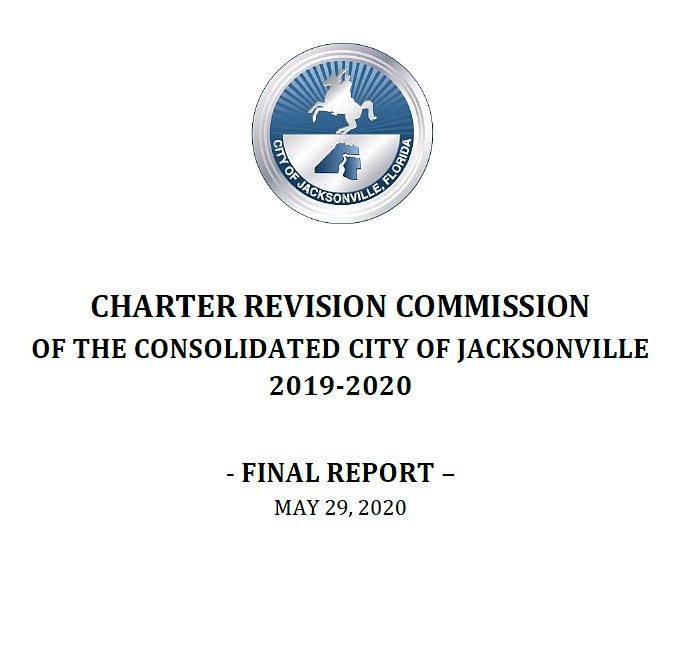
The 2019-20 Jacksonville Charter Revision Commission released its final report May 29.
The commission presents its recommendations for amendments to the City Charter to the City Council and the Duval Legislative Delegation.
The report recommends that Council, through an amendment to the charter, create an Urban Core Development Authority to develop and implement a master plan and to coordinate public and private resources to address the poverty, socioeconomic and other disparities within the designated area.
The boundary of the proposed area would be from the St. Johns River, west along the Arlington Expressway, continuing west on State Street, north on Jefferson Street, west on Fourth Street, south on North Davis Street, west on State Street to Interstate 95, south on I-95 to I-10 West, I-10 West to I-295 North, I-295 North to Pritchard Road, east on Pritchard Road to Old Kings Road, north on Old Kings Road to I-295 North, I-295 North to the Trout River, following the Trout River to where it meets the St. Johns River, following the St. Johns River south to the Arlington Expressway.
The development authority, with a board of directors, would have powers and duties that include the ability to:
• Hire and compensate a CEO and a small staff.
• Negotiate and approve economic development agreements without further Council approval provided they meet preapproved standards and forms.
• Develop and interpret a master plan and approve urban core development and redevelopment.
• Receive, dispose of and bond authorized revenues.
• Establish, operate, license and lease public facilities within the defined urban core.
• Acquire, manage, lease, operate and sell property.
• Prepare reports, plans, studies and proposals for urban core redevelopment, subject to Council approval.
• Create an incentive-based approach for certification and approval of projects. If a developer or project moves forward without the support of the authority, it could express its concerns to Council.
The authority would convene agencies and organizations to work together and compile data on the urban core’s issues and assets.
The agencies would include private and nonprofit organizations as well as the Duval County Public Schools, Jacksonville Sheriff’s Office, Kids Hope Alliance, the Jacksonville Housing Finance Authority and Health, Parks, Public Works, Neighborhoods and Economic Development departments. It also would include churches and civic and social organizations.
They would develop a master plan to set priorities for the urban core’s needs, along with five-year action plans.
Initial operating expenses would be covered by a general appropriation of less than $1 million for a small startup staff and to support development of the initial master plan.
The authority would be governed by a seven-member board of directors nominated by the mayor and confirmed by Council.
Legislation could establish a Redevelopment Trust Fund of the authority for the deposit of existing funds and accounts, encumbered and unencumbered, for the recommended or proposed funding source.
The fund also could collect revenues from sale of designated city-owned properties located in the defined urban core area.
The commission recommends creation of a Community Redevelopment Area in the urban core, a property tax millage increase within the area and Capital Improvement Program appropriations to address infrastructure needs in the urban core.
In addition:
• The commission recommends extending term limits for City Council member to three consecutive four-year terms instead of the current two consecutive four-year terms and retaining the two-term limit for the mayor and Duval County’s constitutional officers (property appraiser, supervisor of elections and tax collector).
The Charter Revision Commission was created by Ordinance 2004-584-E, codified in Chapter 17 of the Ordinance Code. It provides that the commission “shall be appointed during the month of May 2009, and shall thereafter be reappointed every 10 years during the month of May in the year prior to the taking of the U.S. decennial census.”
The current commission was appointed in May 2019 and convened its first organizational meeting on July 31, 2019. The group met biweekly and then weekly through August, September and October, then each month until it presented its report.